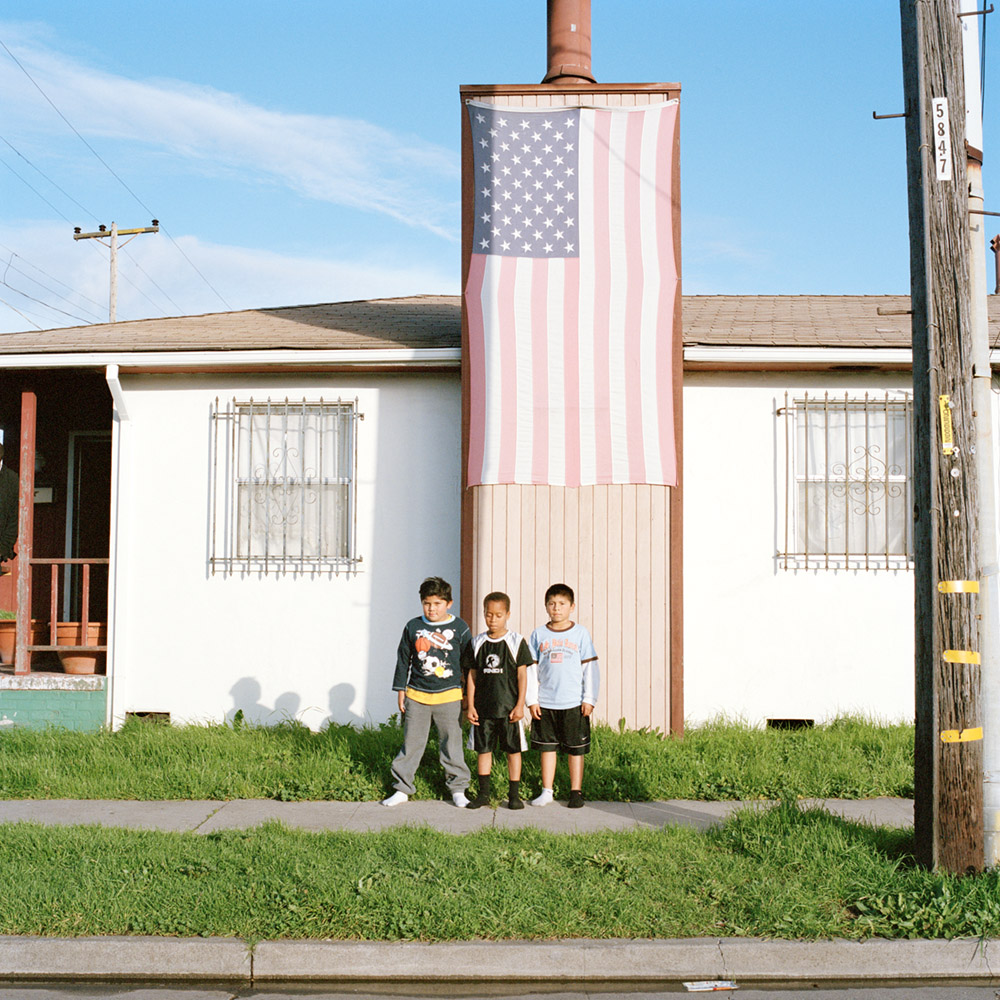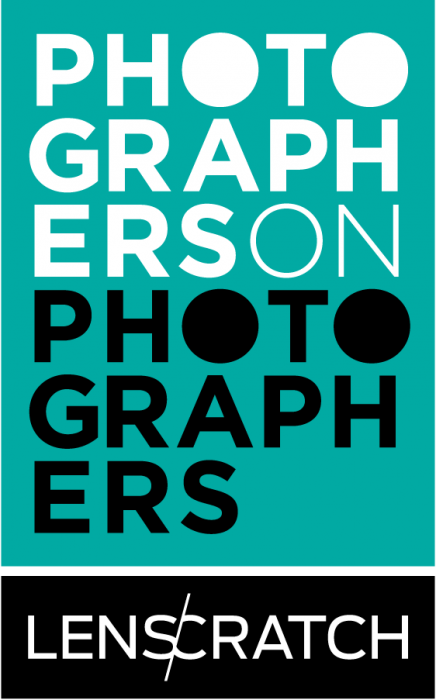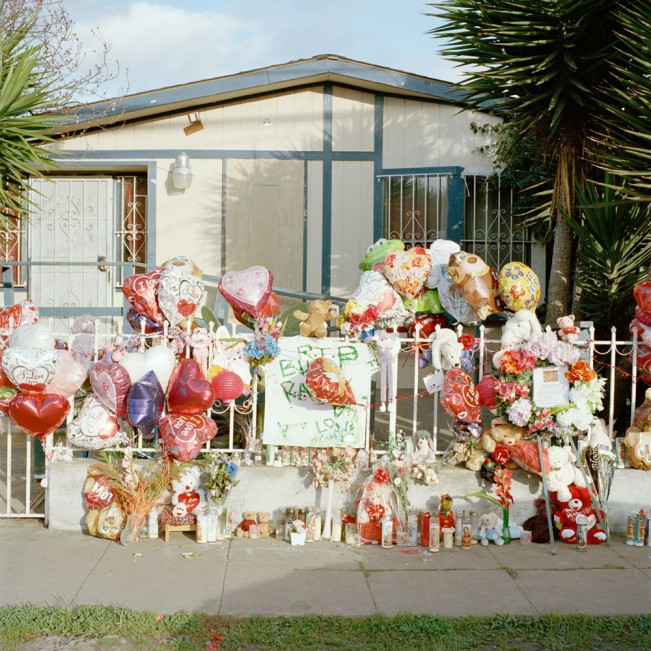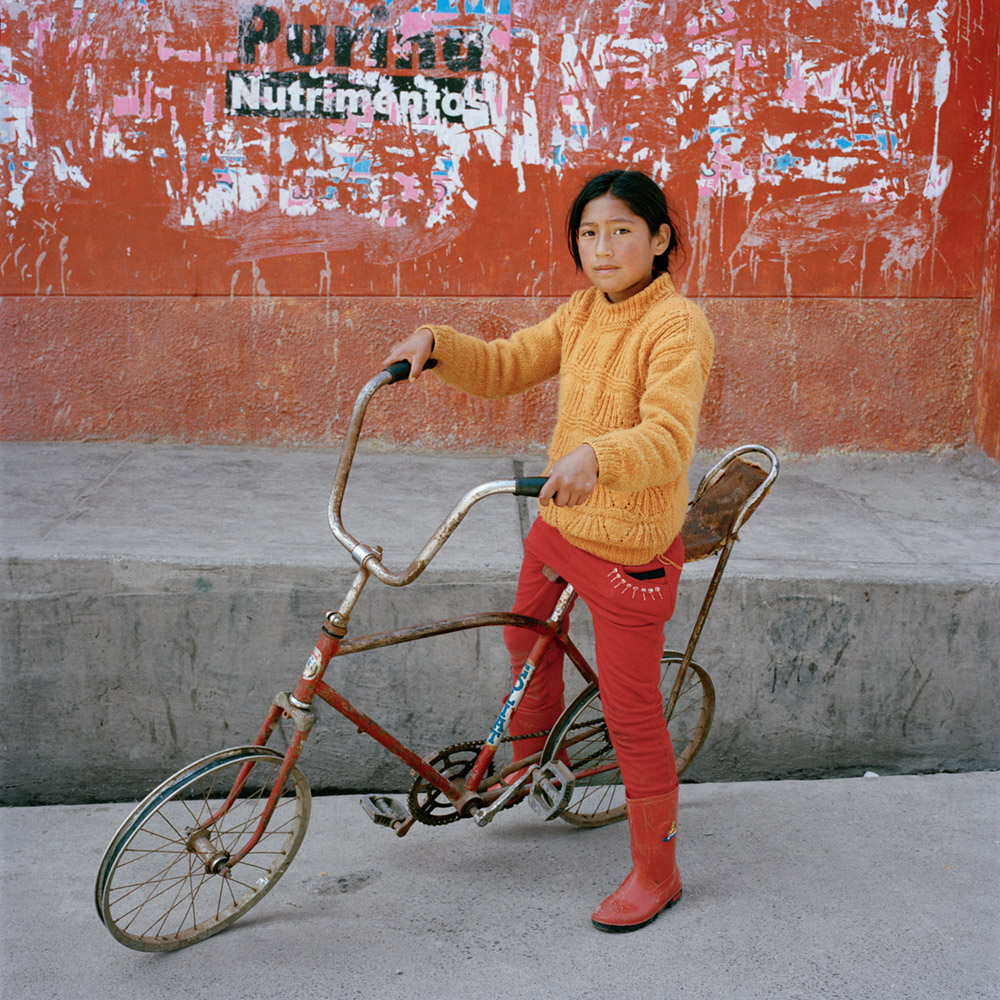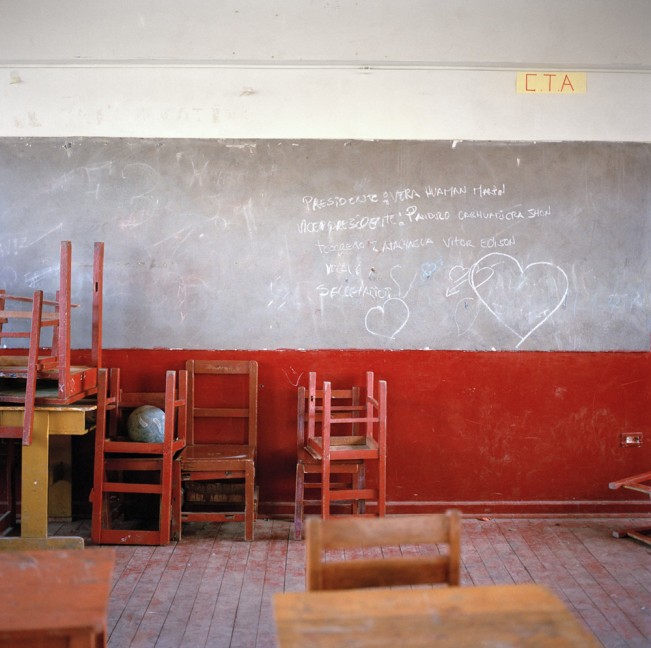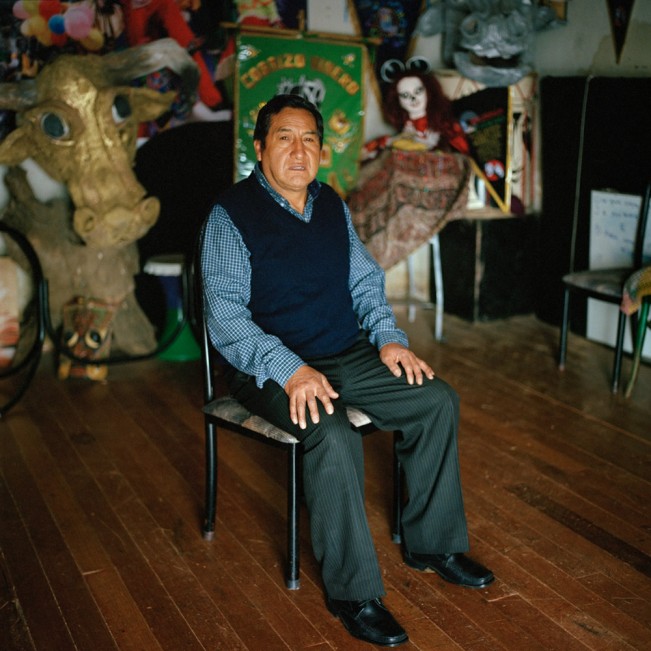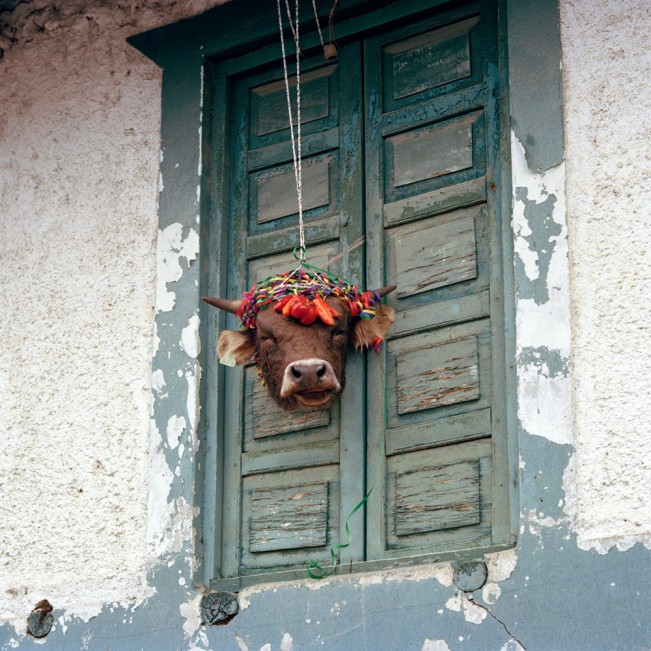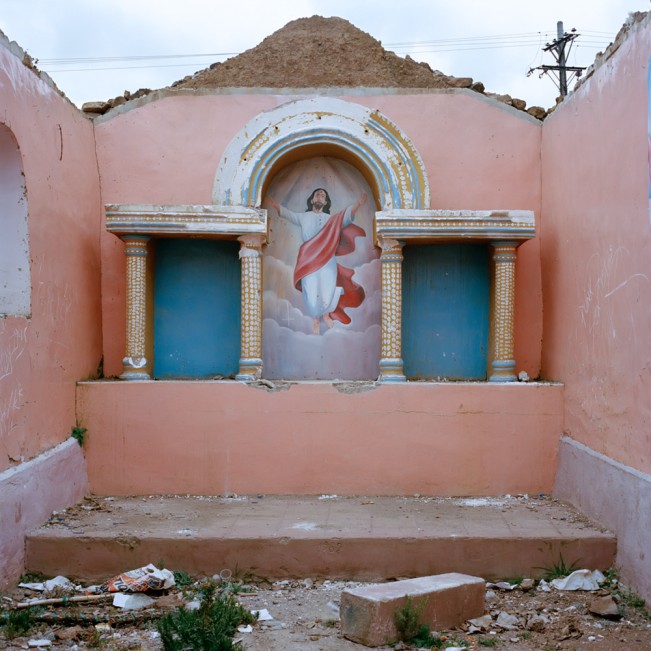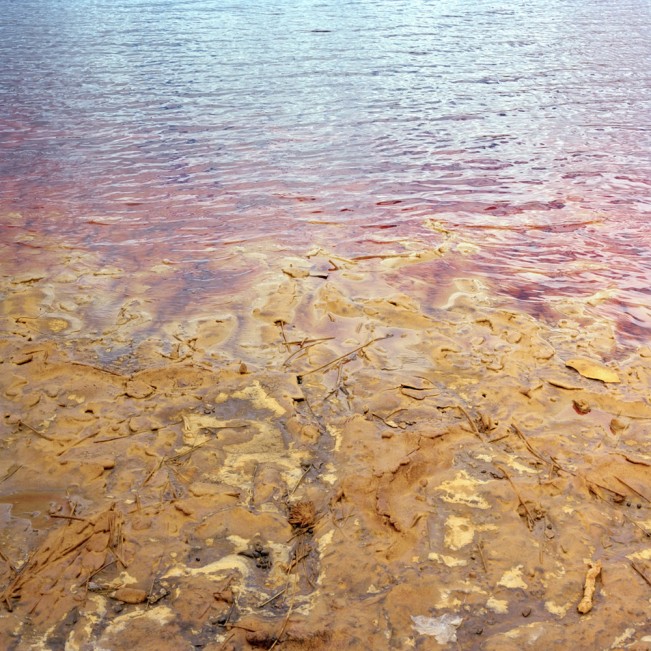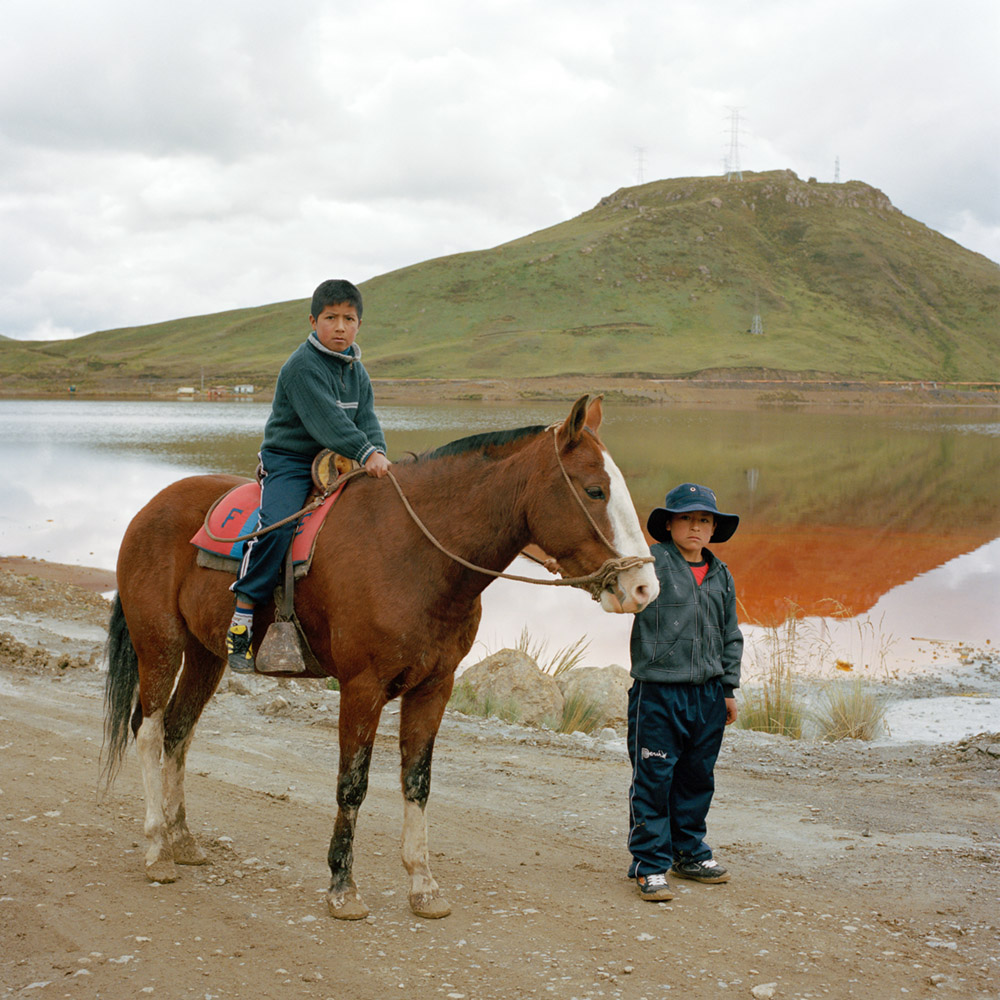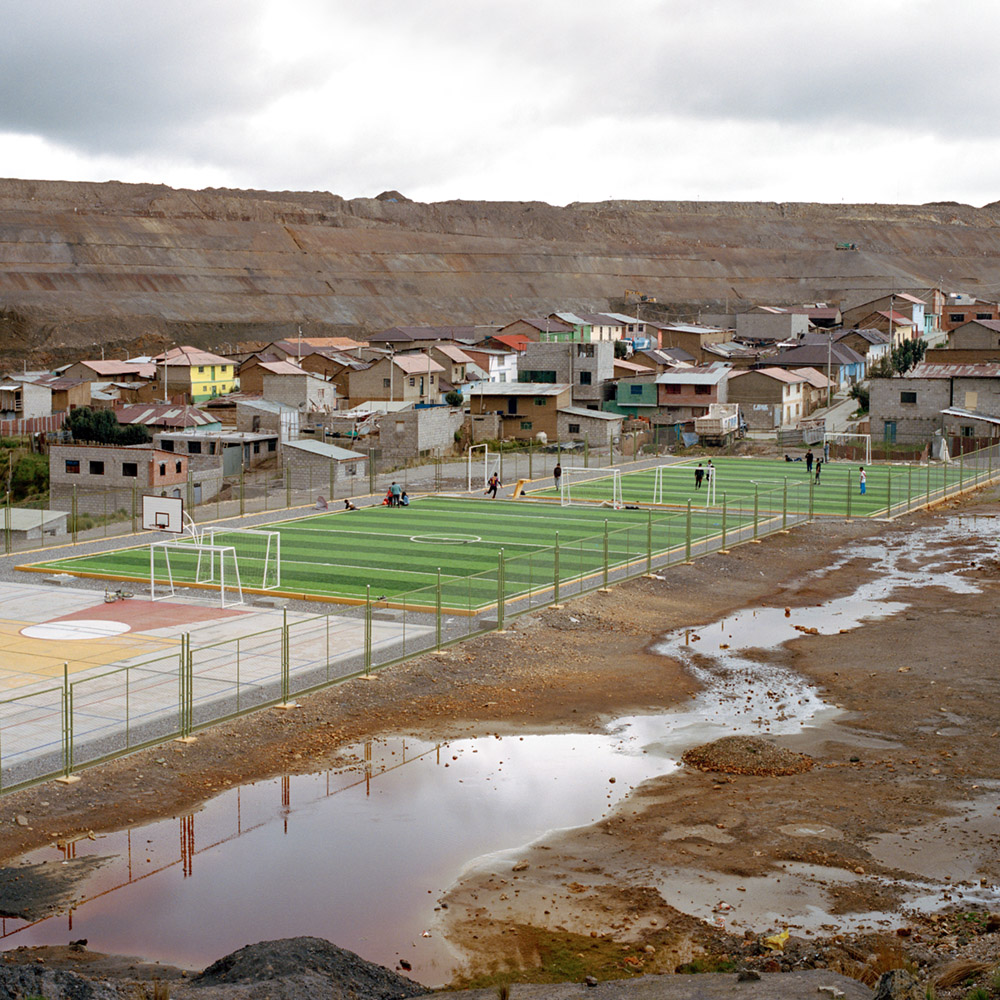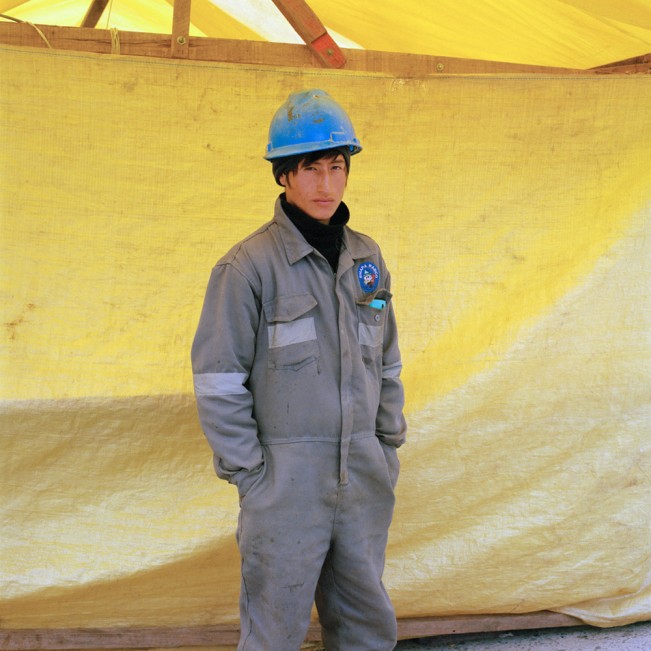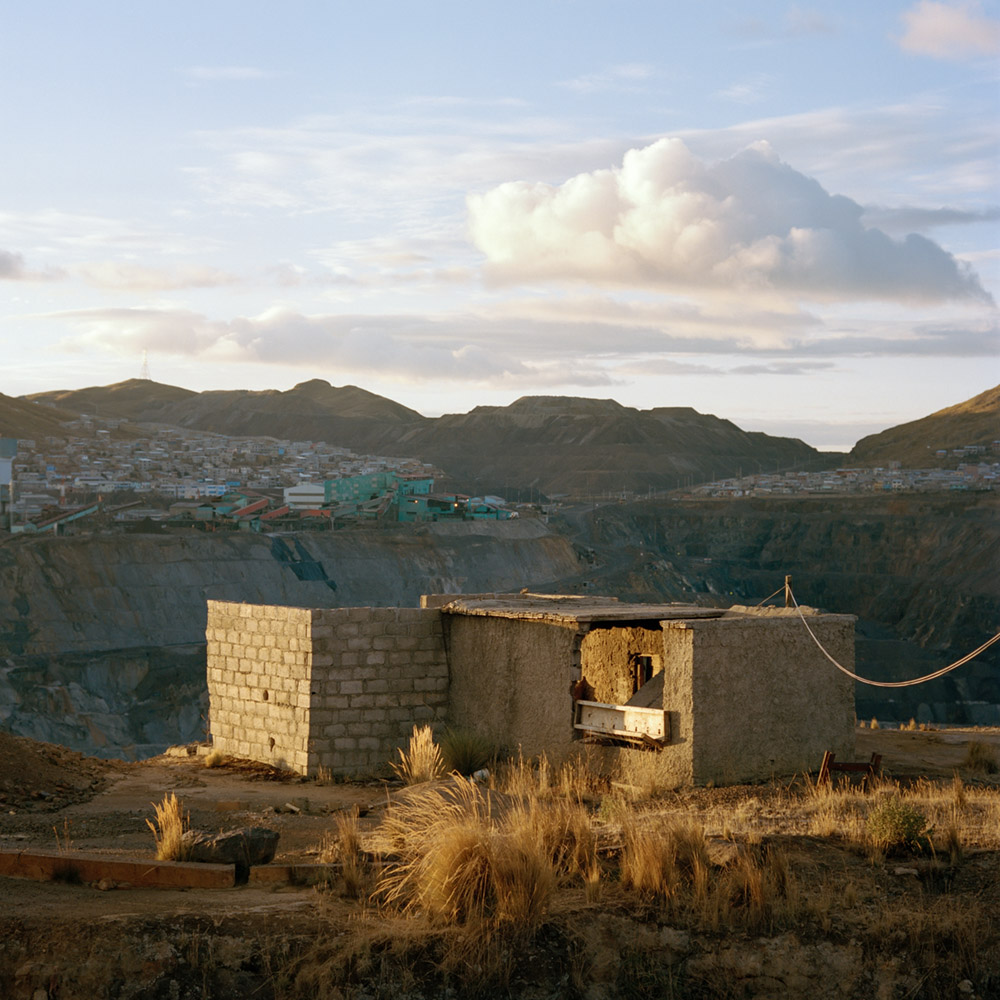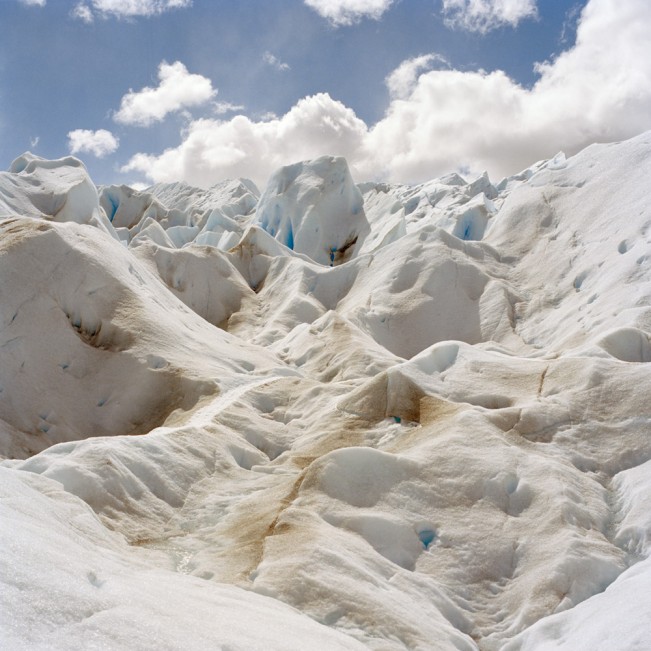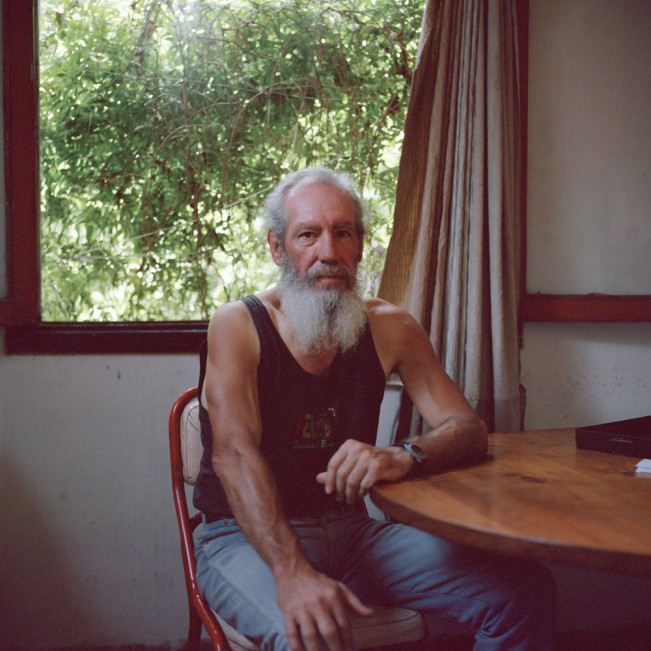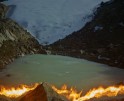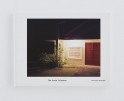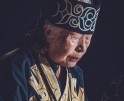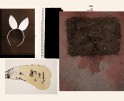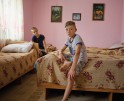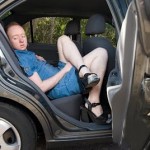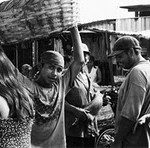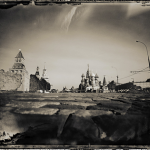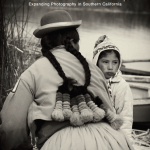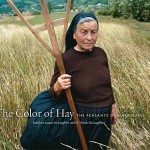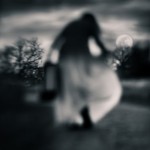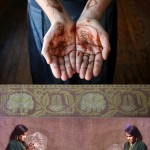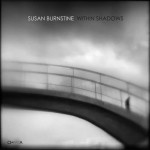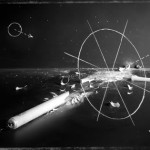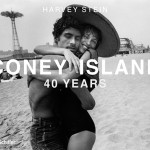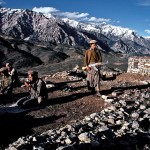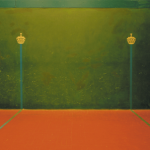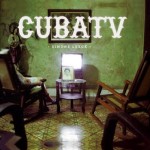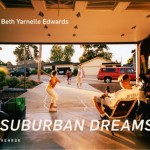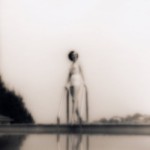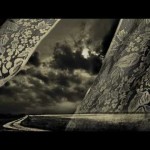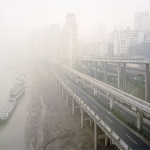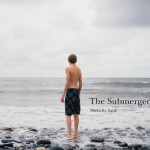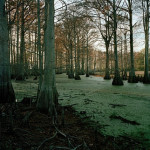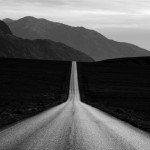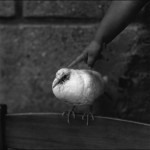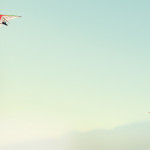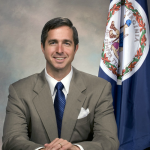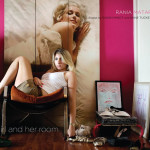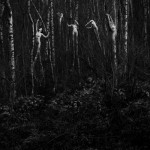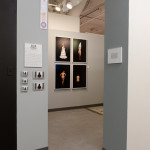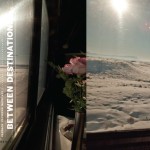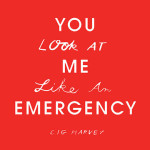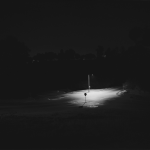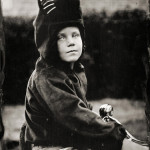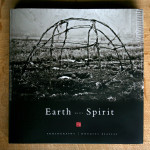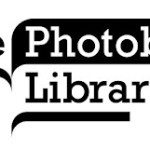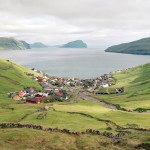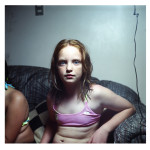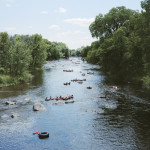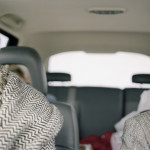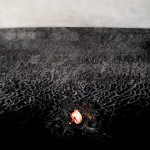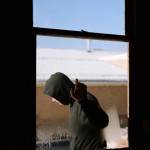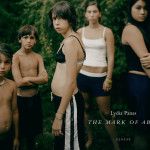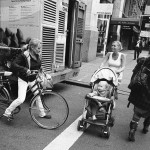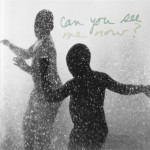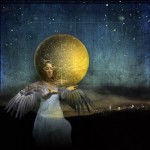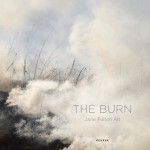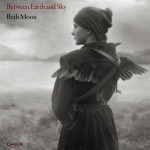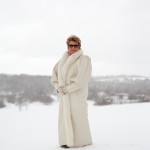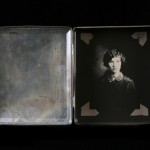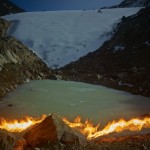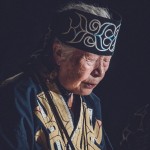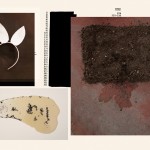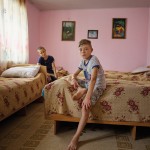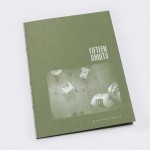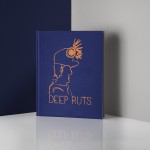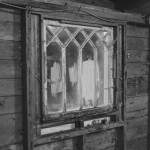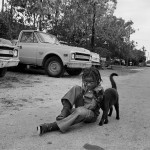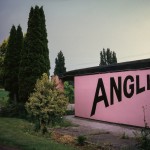Photographers on Photographers: Eleonora Ronconi in conversation with Paccarik Orue
I have always thought it would be great to be with someone who understood what an artist feels like, and how we see life. I was lucky enough to marry an artist, but more importantly, I married a good friend of mine.
Paccarik Orue and I met about 8 years ago when we were both in a show at Carte Blanche gallery, owned by Gwen Lafage, in San Francisco. We were introduced by her because she knew we were both Latin, but she never mentioned that at the time she made the connection and Paccarik kept speaking to me in English. I thought his accent was Latin but I did not want to assume anything -Paccarik is not the typical Spanish name, so I continued to converse with him in English. We kept walking around the gallery and we stopped by a photograph that had some kids playing football and one of them had a Barcelona shirt (for those who do not know the sport, one of the best football players in the world is Leonel Messi, who plays for Barcelona and he’s an Argentinian), so I said to him, “Oh, I love Barcelona because Messi plays on the team and I’m Argentinian”. I thought he would get a side whiplash, as he turned around abruptly and stared at me… and after a pause he said, “Really? I just came back from there. My dad is Argentinian and I visited him”. And I said, so if you speak Spanish, why do you keep speaking to me in English with that accent?”. It was love at first sight. We became very good friends, and as years went by, with a lot of ups and downs, we fell in love and got married in 2018.
I have always admired Paccarik’s work and his commitment to photography. He works really hard and he truly cares about social justice and giving people a voice.
I never thought I would get to interview him, but here we are, and I’m sharing with you things that I get to see every day and some personal stories that a lot of people do not know. I hope you get to love his work and his story as much as I do.
Paccarik Orue was born and raised in Lima, Peru and resides in the Bay Area, California where he earned a BFA from the Academy of Art University. His work has been shown at Blue Sky Gallery, SFO Museum, Jenkins Johnson Gallery, Book & Job Gallery, SF Camerawork and it has been featured in The New York Times, PDN, Juxtapox, KQED, Conscientious, Lenscratch, among others. He was selected by PDN as one of the 30 Emerging Photographers to Watch in 2016 and has been awarded En Foco’s New Works Photography Fellowship Award (2013-2014.) Orue is the recipient of Duke University’s 2016 Archive of Documentary Arts Collection Award for Documentarians of Color. His first monograph, There Is Nothing Beautiful Around Here was published by Owl & Tiger Books in 2012. @paccarik
Eleonora Ronconi was born and raised in Buenos Aires, Argentina. Her work explores ideas of memory, family and the perception of home, based on her experiences as an immigrant with ties to two worlds.
After four years in Medical School, she shifted gears and received a BA in Scientific Literary Translation and Conference Interpreting in her hometown of Buenos Aires. After a move to the United States, she began to create fine art photography as yet another language.
Eleonora has taken intensive photographic workshops at Santa Fe Photography Workshops, Maine Media Workshops and LACP among others. Workshop instructors included Sam Abell, Ed Kashi, Mary Ellen Mark and Cig Harvey.
Her work has been selected to participate in several group and solo exhibitions around the globe, including the Triton Museum, the Griffin Museum, Building Bridges Art Gallery, Rayko Photo Center, Verve Gallery and San Francisco Arts Commission in the US, Festival de la Luz in Buenos Aires, and Fotofever in Paris. Her photographs are in the collections of several museums and also in private collections. Her first solo exhibition was in her native Buenos Aires in 2009.
Her photographs have been featured in publications such as A Photo Editor, Aesthetica Magazine, Le Journal de la Photographie, Palo Alto Weekly, Lenscratch and Fraction Magazine among others.
She has lived and worked in California since 1998. Instagram:@eleoronconi
Eleonora Ronconi: I’ve seen you work on El Muqui for a number of years now, so where do you think you are at and what are your plans for it?
Paccarick Orue: Well, you’ve seen the work from the very beginning, you’ve helped with me with the early edits, submitting work for open calls and even designing a few shows. The last trip I made to Peru was last year, so I think I’m done photographing and now I’m concentrating on a new book dummy, so that’s where I am at, but then again, I thought the same thing a couple of times before, when I thought I was done, and as I got along with the editing process for the book, I felt that I needed more…
ER: Well, I think that it’s been more than a couple of times that I’ve heard you say that, so do you think this is it?
PO: I hope so. What I’m hoping it’s to be happy with the book dummy -and if that’s the case, then yes, I am, but if not, I’ll probably…
ER: Go back to Peru
PO: Yes, why not? (Laughter)
ER: Right. How do you envision the book? And why a book?
PO: Because, to me, it signifies closure. It is a sign for me that things are making sense -that the arc of the story makes sense, so I can move on, so a book it’s very helpful that way. Otherwise, I keep on going and going with no ending. That, and I also like the idea of making a small edition, something intimate and precious that people might want to hold in their hands and that can live in their collections.
ER: So you want to make an artist book?
PO: I do, I want something handmade. I don’t think I want a big edition, so I’m going to go the indy way.
ER: Well, you’ve always followed your instincts and have done what you wanted with your art, which is something I admire deeply, so that’s a good way to go. You mentioned before you wanted to move on, so tell me a little bit more what moving on for you means -do you know what you are moving on to, or you are not sure yet?
PO: I do. And I don’t. And I think you do as well. But, yes, you and I are moving to Argentina.
ER: Are we?
PO: Yes, we are. I hope so. I hope you are not changing your mind.
ER: Laughter – Oh no, I’m not changing my mind, it’s that due to the current situation, we are not sure what’s going to happen, so it’s one day at a time, but it would be nice to be there.
PO: Yes, I think it would be nice. You know, when I started photographing El Muqui, the Peru project, I did it because I wanted to reconnect with my Peruvian roots and photographing there was very helpful. Now, at this stage of my life, I started reconnecting with my father, whom I met just a few years ago, and I’ve seen him only a handful of times and he lives in Argentina, and you are from there, and we are moving there… that’s something I look forward to. I want to learn about myself through my father, through the place where I could have been born.
ER: Yes, that’s true, because your mother left Argentina when she was 5 or 6 months pregnant with you?
PO: Yes
ER: So you could have been Argentinian -and be careful with what you say!
PO: Thankfully I wasn’t (laughter).
ER: Well, you are more Argentinian than anything else, but let’s move on… I actually think, that some of the best photos you’ve taken were in Argentina. I think there’s a sensitivity in those photographs, there’s something very strong in them, specially in the portraits, that I did not see in your other work, so I look forward to seeing what you can do there. It’s going to be interesting, because it will also be a continuation of discovering yourself and your Argentinian side -after all, you are half Argentinian (no matter how much you deny it!). Note from the interviewer: Us, Argentinians, are famous for being arrogant, and know it all, and we are not very popular among our Latin siblings!
PO: Yeah, photography has been very kind to me, helping me with my life cycles. Early on, when I started photographing in Richmond, I was just coming out from being undocumented for years. So I think photographing in a community like Richmond helped me deal what that means.
ER: Let’s clarify this for people who are not from California or the Bay Area: Richmond is an area that’s populated by immigrants, African Americans, and working class people…
PO: Yes, so it has had its struggles, violence and unemployment, but because of my life experience, I tend to use photography with a positive twist, in a way, trying to see myself in other people. And it was the same thing with Peru, you know, I was there longing to connect to whom I was, and feel Peruvian, and identifying with their problems and their struggles. So may be the next step in Argentina will be helpful to me that way, you know, probably getting to know my father and even you…
ER: What do you mean? You’ve known me for eight years!
PO: Yeah, I’ve known you for a long time, but you know how it is when you start exploring places with a history that has a direct personal connection, and that’s where the magic in photography happens; I don’t photograph a lot, but I photograph when something speaks to me.
ER: When something matters to you.
PO: Right.
ER: It’s funny, that we are both immigrants and we really feel like we have to connect to our identity -I think it’s a common thread for people who have been here for a long time. It comes to a point where you feel like you have to connect to your roots, you have to feel like you belong. And sometimes as immigrants we have this dichotomy that we don’t belong anywhere, so do you think your photography is a way of connecting, that you have roots, photographing things that make you feel like you in a way?
PO: Yes, I’ve always thought of the camera as a connector, because when you are in the middle of that search, when you put yourself out there, the camera literally helps you connect with people. When you approach a stranger and you start talking to them and let them know what you are doing, from the bottom of your heart, people get it, but I think that if I didn’t have the camera, I wouldn’t have that connection. It helps me experience and live things that otherwise I wouldn’t see.
ER: Well, I think it’s going to be very interesting to move to another country where you were almost born, and see what the next chapter of your life has in store for you. I’m sure you are going to make wonderful work, like you always do, but I’m your wife, so I might be a bit subjective about this (laughter), I hope you can find that small missing piece of yourself and reconnect to a place that means a lot to you, but you did not know that until you went back and saw your father for the first time after decades. I might add though, that your father lives 20 minutes away from where I grew up, so you could have been born and raised very close to where I lived!
PO: Yes, I’m really looking forward to that. I think it will be a fun and exciting next step in our lives. Not only our personal lives but also artistically speaking too.
ER: Well, thank you for talking to me and letting people in, because there are a lot of things about you I know but people don’t -you are very private and you don’t talk about yourself very much so thanks for the interview, and sharing a piece of you with everyone else.
PO: Thank you. It was a lot of fun!
Posts on Lenscratch may not be reproduced without the permission of the Lenscratch staff and the photographer.
Recommended
-
Earth Week: Simon Norfolk: When I am Laid in EarthApril 27th, 2024
-
Shinichiro Nagasawa: The Bonin IslandersApril 2nd, 2024
-
The International Women in Photo Association Awards: Lorraine Turci: The Resilience of the CrowMarch 16th, 2024
-
The International Women in Photo Association Awards: Rayito Flores Pelcastre: Chirping of CricketsMarch 14th, 2024
-
The International Women in Photo Association Awards: Louise Amelie: What Does Migration Mean for those who Stay BehindMarch 12th, 2024

